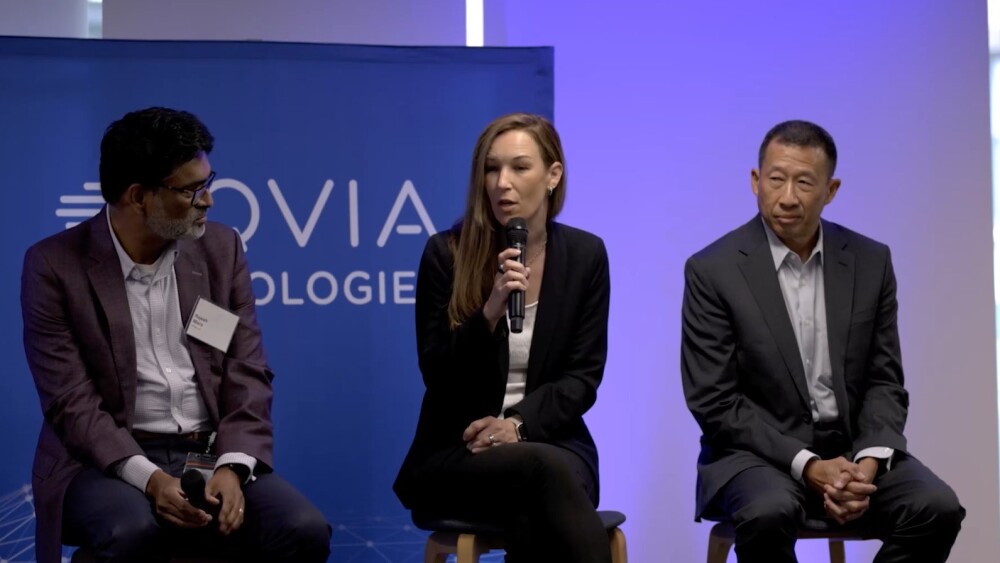The study, published in the journal Anesthesia & Analgesia, evaluated the EnsoETM’s heating and cooling capacity in a group of 19 patients having elective non-cardiac surgery.
CHICAGO--(BUSINESS WIRE)-- A new clinical study has demonstrated the warming and cooling capabilities of Attune Medical’s EnsoETM esophageal temperature management device, suggesting that it can be used to supplement surface warming devices, provide warming in cases not amenable to surface warming, and supplement, or possibly even replace, catheter-based cooling devices. The study, published in the journal Anesthesia & Analgesia, evaluated the EnsoETM’s heating and cooling capacity in a group of 19 patients having elective non-cardiac surgery.
Managing patient temperature is critical for a wide range of patient conditions. Many patients in the intensive care unit benefit from cooling, and all patients undergoing surgical procedures, especially longer, complex surgeries, will benefit from warming. Commonly used methods to regulate temperature include forced air warming covers, water blankets, and endovascular catheters; however, many surgical patients cannot be covered with surface devices, and, as the article points out, endovascular methods can be invasive and expensive. Using the esophageal space to provide temperature management combines the benefits of a non-invasive approach with direct access to the patient’s core, delivering unique advantages in temperature-based clinical management of warming and/or cooling applications.
For this prospective study, authors evaluated the performance of the EnsoETM in both cooling and warming elective surgical patients. The study found a mean heat transfer rate during warming of 18 watts, which increased core temperature at a rate of 0.5°C/h. During cooling, mean heat transfer rate was 53 watts, which decreased core temperature at a rate of 0.9°C/h. The authors note that these cooling and warming rates are roughly twice what would be predicted from the wattage measured, potentially due to the esophageal placement of the device which offers close-range access for heat transfer to the major vessels and core.
Senior author of the article, Daniel I. Sessler, M.D., Michael Cudahy professor and chair of the Department of Outcomes Research at Cleveland Clinic, commented, “Our study found that an advantage of esophageal heat exchange is that heat is transferred directly into the core, and thus rapidly warming or cooling the patient.”
Maria Gray, Attune’s VP of Clinical Services, remarked, “During surgery, maintaining patent temperature is essential to reduce intraoperative blood loss and postoperative infections, among other complications. This study demonstrates the ability of the EnsoETM to transfer heat directly to or from the core of the patient, offering an efficient and rapid supplement or alternative to other methods for cooling or warming patients. The results also highlight the reasons for the growing interest in our innovative technology for use across the entire spectrum of patient temperature management.”
Formerly known as Advanced Cooling Therapy, Attune Medical has developed proprietary medical device technology that simplifies access to the patient’s core to efficiently control core temperature. Whether warming or cooling, the company’s technology platform optimizes, or “tunes”, patient temperature safely and effectively. Attune’s initial product, the EnsoETM (formerly Esophageal Cooling Device or ECD), is designed to modulate and control patient temperature through a single-use, fully-enclosed system that is inserted into the esophagus. Two lumens attach to an external heat exchange unit while a third, independent, lumen simultaneously allows gastric decompression and drainage. The EnsoETM can be rapidly placed by most trained healthcare professionals, in similar fashion to a standard gastric tube, and can be used to control patient temperature in the operating room, recovery room, emergency room, and/or intensive care unit. No other products on the market are cleared for use in the esophageal environment for whole-body temperature modulation.
Attune Medical (as Advanced Cooling Therapy) received US FDA de novo clearance for the EnsoETM (Esophageal Cooling Device or ECD) in 2015 for use with the Medi-Therm III by Stryker®. The company received FDA 510(k) clearance in 2016 for use with the Blanketrol® II and III Hyper-Hypothermia systems made by Cincinnati Sub-Zero, a Gentherm Company, and FDA 510(k) clearance for use with the Altrix System by Stryker® in 2017. It received its CE Mark in Europe in 2014, with an expanded indication for use up to 120 hours in 2016 and a CE Mark for use with the Altrix System by Stryker® in 2017. It is also licensed for sale in Canada and Australia.
View source version on businesswire.com: http://www.businesswire.com/news/home/20180102005099/en/
Source: Attune Medical






